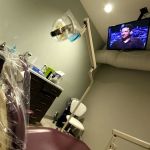What is a Dental Emergency? Understanding Urgent Oral Health Issues
- 1. Introduction to Dental Emergencies
- 2. Common Causes of Dental Emergencies
- 3. How to Handle Dental Emergencies
- 4. Preventing Dental Emergencies
- 5. When to Seek Dental Emergency Care
1. Introduction to Dental Emergencies
A dental emergency is any situation that involves injury or sudden onset of pain in the teeth, gums, or mouth that requires immediate treatment. Whether it’s a broken tooth, a severe toothache, or a sudden swelling in your gums, dental emergencies can happen at any time and often need urgent attention to prevent further damage. Knowing what constitutes a dental emergency and how to handle it can help you navigate these unexpected situations more effectively.
It’s important to remember that dental emergencies are not limited to just pain. They also involve any situation where there is potential for long-term damage to your teeth or oral health. Timely care can prevent serious complications and provide relief from discomfort.
2. Common Causes of Dental Emergencies
Dental emergencies can arise from various causes, each requiring specific care. Some of the most common causes include:
- Trauma or Injury: A fall, car accident, or sports-related injury can lead to chipped, cracked, or knocked-out teeth. If you experience trauma, it’s crucial to seek immediate dental care to minimize the impact.
- Severe Toothaches: A sudden and intense toothache can indicate an infection or abscess. It’s essential to address severe pain right away, as it may worsen without prompt treatment.
- Lost or Broken Fillings: If a dental filling comes loose or breaks, it can expose the tooth to further damage and cause discomfort. Immediate attention is required to prevent infection.
- Swollen Gums: Swelling, bleeding, or redness in the gums can indicate an infection, like gum disease or abscesses. Ignoring such symptoms can lead to more severe health issues.
- Lost or Broken Braces: For those with braces, a broken bracket or wire can cause pain or discomfort. Promptly visiting your orthodontist is necessary to avoid complications with your treatment.
Recognizing these common causes and understanding the symptoms of a dental emergency can help you respond more effectively when an urgent situation arises.
3. How to Handle Dental Emergencies
Knowing how to handle a dental emergency until you can see a dentist is crucial for minimizing pain and damage. Here’s what you should do:
- For a Knocked-Out Tooth: If you lose a tooth, try to place it back in the socket immediately. If that’s not possible, store the tooth in milk or saline solution and get to a dentist as soon as possible.
- For a Broken Tooth: Rinse your mouth with warm water and apply a cold compress to reduce swelling. Keep the broken piece of the tooth if possible and seek dental care quickly.
- For a Toothache: Take over-the-counter pain relievers and use a cold compress to alleviate swelling. Avoid putting anything hot or cold directly on the tooth until you get professional care.
- For Soft Tissue Injuries: If you’ve injured your gums or lips, clean the area gently with water and apply a clean cloth or gauze to stop the bleeding. Seek immediate care to prevent infection.
Immediate care can prevent the emergency from escalating, so always seek professional help as soon as possible.
4. Preventing Dental Emergencies
While some dental emergencies are unavoidable, there are steps you can take to minimize the risk:
- Wear Mouthguards: If you play contact sports, wearing a mouthguard can help protect your teeth from injury.
- Practice Good Oral Hygiene: Regular brushing and flossing help prevent tooth decay and gum disease, reducing the likelihood of sudden dental problems.
- Regular Dental Checkups: Visiting your dentist regularly can help catch potential issues before they become emergencies, such as cavities or gum disease.
- Avoid Hard Foods: Chewing on ice or hard candies can crack or damage your teeth. Be mindful of the foods you consume to protect your dental health.
By maintaining good oral hygiene and taking preventative measures, you can reduce your risk of experiencing a dental emergency in the future.
5. When to Seek Dental Emergency Care
It’s essential to know when to seek immediate dental care. Here are some signs that indicate you need urgent attention:
- Severe Pain: If you experience intense, persistent pain that doesn’t subside with over-the-counter pain relief, it’s time to seek care.
- Visible Injury: Any injury to your teeth or mouth that causes visible damage should be evaluated immediately by a dentist.
- Difficulty Eating or Drinking: If you’re unable to eat or drink comfortably due to pain, swelling, or other dental issues, it’s a sign that you need professional help.
- Swelling or Infection: Swelling, redness, or a fever can indicate an infection that requires prompt treatment to prevent further complications.
If you’re unsure whether your situation qualifies as a dental emergency, it’s always a good idea to call your dentist or an emergency dental clinic for advice. They can guide you on the next steps and help you avoid worsening the problem.







 Dr. Victor L. Gregory Jr. Family & Cosmetic Dentistry5.0 (88 review)
Dr. Victor L. Gregory Jr. Family & Cosmetic Dentistry5.0 (88 review) 21st Street Dental Group4.0 (202 review)
21st Street Dental Group4.0 (202 review) Upper Merion Dental Associates4.0 (329 review)
Upper Merion Dental Associates4.0 (329 review) Mind Your Mouth4.0 (173 review)
Mind Your Mouth4.0 (173 review) Portland Pearl Orthodontics4.0 (65 review)
Portland Pearl Orthodontics4.0 (65 review) Webster Dental Care4.0 (421 review)
Webster Dental Care4.0 (421 review) The Importance of Oral Health Education During Pregnancy for a Healthy Pregnancy
The Importance of Oral Health Education During Pregnancy for a Healthy Pregnancy Best Tips for Brushing Your Teeth Properly for Healthy Gums: Essential Techniques for Oral Health
Best Tips for Brushing Your Teeth Properly for Healthy Gums: Essential Techniques for Oral Health Why Skipping Dental Checkups Can Lead to Bigger Oral Health Problems
Why Skipping Dental Checkups Can Lead to Bigger Oral Health Problems Advantages of Porcelain Dental Restorations
Advantages of Porcelain Dental Restorations How Can Diabetes Cause Tooth and Gum Problems? Preventing and Managing Oral Health Issues
How Can Diabetes Cause Tooth and Gum Problems? Preventing and Managing Oral Health Issues Healthy Habits for Promoting Good Oral Health and Hygiene: Tips for a Healthy Smile
Healthy Habits for Promoting Good Oral Health and Hygiene: Tips for a Healthy Smile